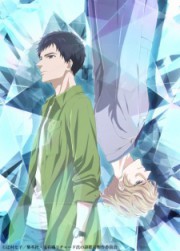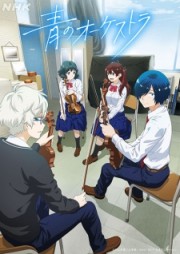The Legend of Korra (TV) Reviews
|
2021
|
| Title(s): |
The Legend of Korra
|
| Creator: |
Nickelodeon
|
| Genres: |
Action,
Adventure
|
| Age Group: |
All Ages (Nothing objectionable) |
| Vintage: |
April 14, 2012 |
| Status: |
Still Airing |
| Summary: |
The Legend of Korra is an American animated television series, that premieres on the Nickelodeon television network on April 14, 2012. The series is a sequel to Avatar: The Last Airbender, which aired on the same network from 2005 to 2008, and is currently set to run for 26 episodes |
|
Reviews

|
This is great, but why all the stupid "not anime" reviews?
|
Overall Rating
Excellent
Story: 5
Dialogue: 5
Animation: 5
Entertainment: 5
|
I loved the original Avatar: The Last Airbender series, so I had high hopes for this anime. So far, it doesn't disappoint. The original series was directed more toward children and it looks like the animators were trying to gear this anime toward fans of the original, who would now be teens. The main character is a teenage girl and the story has more teenage issues in it than the previous series. The dialogue so far is really good. There are some parts that sound cheesy, but that happens in any show, animated or live action. The animation is more streamlined than in the previous series, which I love. I'm really looking forward to the rest of the series.
I usually wait until a series is complete before reviewing it so that I can make an informed review of the whole instead of just a part, but I had to review this because I'm so sick and tired of the reviews I've seen for this and other american anime posted on this website bashing the series and giving it poor reviews simply because they say "This isn't anime! It's American cartoons!" This is one of the stupidest arguments any person can make because it's all a matter of semantics. The word "anime" is the Japanese word for "cartoon" and is short for "animation" (or as it would be pronounced in Japanese ah-ni-meh-shon). Japanese animation was derived from Disney animation and European animation when it was first introduced in Japan and there is no difference between American animation, Japanese animation, or animation from any other country. Animation is still animation no matter where you go and can be for children, teens, or adults. In Japan, the term anime does not specify an animation's nation of origin or style; instead, it serves as a blanket term to refer to all forms of animation from around the world, so why do we pointlessly fight over the term so much?
|
|
19 out of 21 people found this review helpful.
|

|
Popular Anime
Top Contributors
| Top Contributors |
|
| satoshiandkinki |
72,149 files |
|
| Nanilist |
56,826 files |
|
| smf |
26,294 files |
|
| rension23 |
15,884 files |
|
|
10,792 files |
|
| Little_Wolf-18 |
9,112 files |
|
| TextMakeKeke |
7,783 files |
|
| Numisma |
4,054 files |
|
| Zenixus |
4,028 files |
|
| manalosana21 |
3,740 files |
Recent Reviews
 |
You are reposting my content without permission. Take this down immediately.
|
|
 |
Hello hello,
media.tokyoinsider.com seems down. Is it possible to restore it?
Many thanks!
(review note not relevant)
|
|
 |
If you can imagine Yuri on Ice! meets Holmes of Kyoto, then this is it. Slow paced but gripping. Boy-Love but not distasteful...
|
|
 |
media.tokyoinsider.com is back up now. You know when media.tokyoinsider.com is down because when it's down, the "What's hot"...
|
|
 |
this is for tokyoinsider, not the anime
|
|
 |
satoshiandkinki why did you give up putting new anime series out
|
|
 |
The link does not go to the download page, no way to download.
|
|
 |
Sorachi you absolute troll. It doesn't matter how many "Final" movies you make huh?
|
|
 |
Excellent
|
|
 |
bacb
|
|